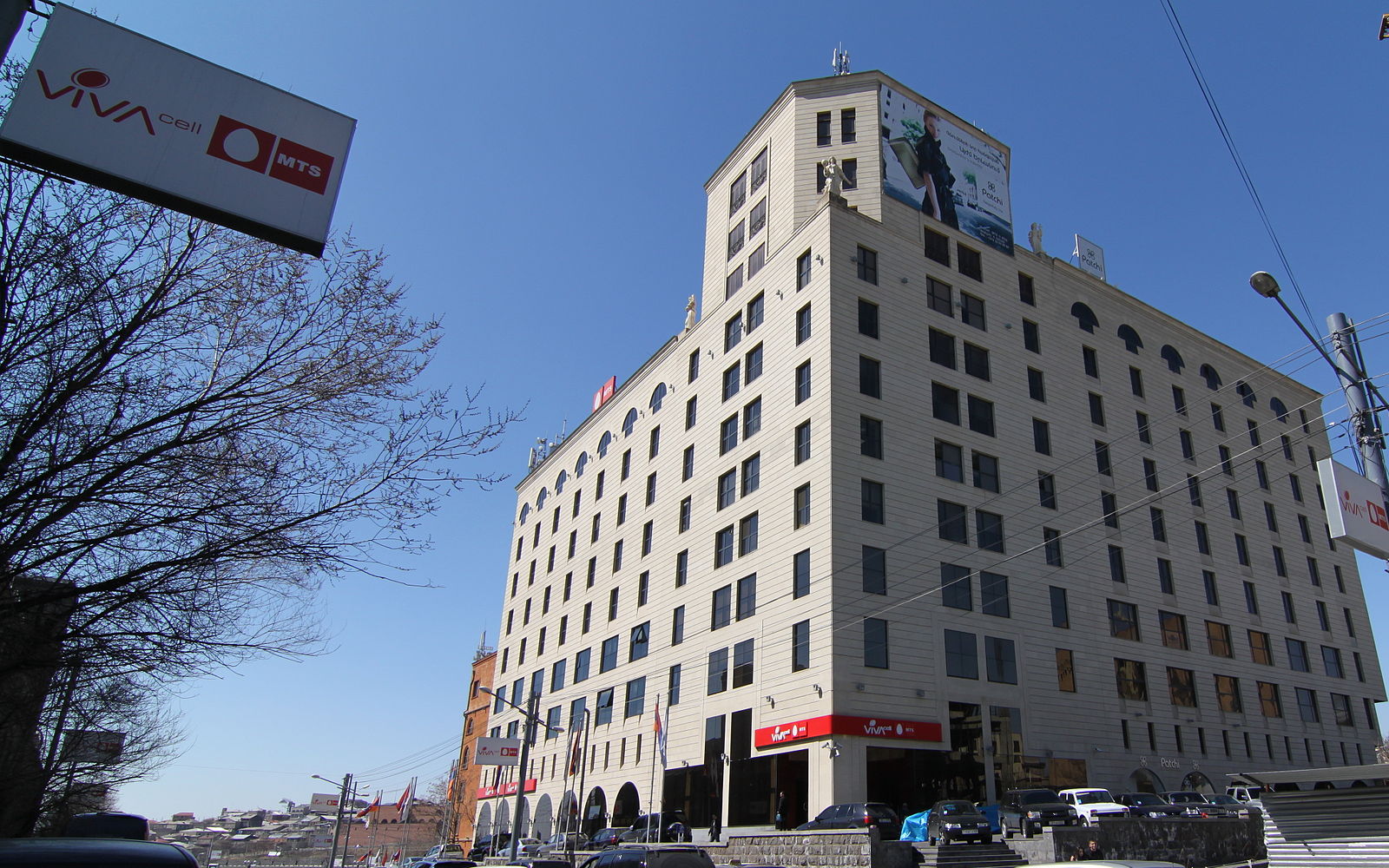BSG Resources Limited (in administration), BSG Resources (Guinea) Limited and BSG Resources (Guinea) SÀRL
iarb
South Africa
Start and End Date
September 8, 2014 - Present
Treaty Type
Investment Law
Sector
Oil, Gas & Mining
Case Decision
Pending
Arbitration Center
ICSID
Representative of the Respondent
DLA Piper, Paris, France
Orrick Rambaud Martel, Paris, France
Representative of the Claimant
Mishcon de Reya Solicitors, London, U.K.
Amount Claimed
Material Unavailable
Amount Given to Arbitrators
Material Unavailable
Legal Fees of Respondent
Material Unavailable
Legal Fees of Claimant
Material Unavailable
Total Legal Fees
Material Unavailable
Administrative Fees
Material Unavailable
Getma International and others
iarb
South Africa
Start and End Date
11/3/2011 - December 13, 2016
Treaty Type
Investment Law
Sector
Transportation
Case Decision
Decided in favor of the investor
Arbitration Center
ICSID
Representative of the Respondent
Edasso Rodrigue Bayala, Ouagadougou, Burkina Faso
Orrick Rambaud Martel, Paris, France
Representative of the Claimant
Fischer, Tandeau de Marsac, Sur & Associés, Paris, France
PLMJ – A.M. Pereira, Sáragga Leal, Oliveira Martins, Júdice e Associados RL, Lisbon, Portugal
Amount Claimed
EUR 42,245,208
Amount Given to Arbitrators
Not Specified
Legal Fees of Respondent
Not Specified
Legal Fees of Claimant
Not Specified
Total Legal Fees
Not specified
Administrative Fees
Not specified
Société Civile Immobilière de Gaëta
iarb
South Africa
Start and End Date
November 28, 2012 - December 21, 2015
Treaty Type
Investment Law
Sector
Construction
Decided in favor of the state
Discontinued
Arbitration Center
ICSID
Representative of the Respondent
Cabinet Mamadou S. Traore, Ouagadougou, Burkina Faso
Orrick Rambaud Martel, Paris, France
Representative of the Claimant
Derains & Gharavi, Paris, France
SCP Akl & Akl, Beirut, Lebanon
Amount Claimed
Not Specified
Amount Given to Arbitrators
US$ 517,998.39
Legal Fees of Respondent
EUR 792,215.79
Legal Fees of Claimant
US$ 925,131 But expected to pay compensation to the defendant in the amount of EUR 633,772.63
Total Legal Fees
US$ 647,998,392
Administrative Fees
Not specified
UNTITLED
iarb
South Africa
Start and End Date
January 8, 2007 - August 4, 2010
Treaty Type
BIT
Sector
Oil, Gas & Mining
Case Decision
Discontinued
Arbitration Center
ICSID
Representative of the Respondent
Freshfields Bruckhaus Deringer, Paris, France
Gerrit L. Grobler, Pretoria, South Africa
State Attorney of the Republic of South Africa, Pretoria, South Africa
Representative of the Claimant
Elihu Lauterpacht, London, U.K
Guglielmo Verdirame, London, U.K.
Toby Landau, London, U.K.
Webber Wentzel, Johannesburg, South Africa
Amount Claimed
375.00 Million USD
Amount Given to Arbitrators
Not Specified
Legal Fees of Respondent
Not Specified
Legal Fees of Claimant
EURO 400,000 to be paid to respondent
Total Legal Fees
Not specified
Administrative Fees
Not specified
Minoutsi Shipping Corp Vs. Trans Continental Shipping Services (Pte) Ltd [1971-1973] SLR(R) 21; [1971] SGHC 3
iarb
Algeria
Summary
A dispute arose between the parties pursuant to a charter party, which provided that any disputes arising should be referred to arbitration in London, with one arbitrator to be appointed by each party unless the parties agreed on a single arbitrator. Minoutsi appointed an arbitrator. As Continental failed to nominate an arbitrator, Minoutsi called upon its arbitrator to assume the function of sole arbitrator. Upon giving notice to both parties, the arbitrator made his award in favour of Minoutsi. Minoutsi then began an action in Singapore against Continental for the sum awarded by the arbitrator in London. It then applied to the Singapore court for leave to sign final judgment against Continental under O 14 of The Rules of the Supreme Court 1970.
Continental opposed the application and argued that the arbitration award was bad because Continental had not nominated an arbitrator, and had not agreed that the law of England would apply to the arbitration. The Court held that the arbitration was conducted in accordance with the charter party and the award was thus a good one. The charter party was silent as to what law should govern the arbitration and also as to what should take place if one of the parties failed to nominate an arbitrator when called upon to do by the other party. As such, with the parties’ agreement that the arbitration should take place in London and in the absence of any specific provisions to the contrary, the law of England should apply to the arbitration proceedings.
Final Decision
Allowed leave to sign final judgment (of arbitration award) against Continental
Galsworthy Ltd of the Republic of Liberia Vs. Glory Wealth Shipping Pte Ltd [2011] 1 SLR 727; [2010] SGHC 304
iarb
Algeria
Summary
An arbitration award was issued in London – Glasworthy came to the Singapore courts and obtained leave to enforce the award. Glory Wealth Shipping (GWS) applied to set aside the order granting leave to enforce. The 2010 Refusal to grant application to set aside order granting leave to enforce arbitration award USD 40million application was dismissed, but dissatisfied, GWS appealed on three grounds – that the award contained a decision on the matter beyond the scope of submissions to arbitration; that the arbitral procedure was not in accordance with the agreement of the parties and the enforcement of the award would be contrary to the public policy of Singapore. The Court held that GWS was not entitled to apply to set aside the order granting leave to enforced, which amounted to an abuse of process, as GWS had elected to proceed in the English courts. In the alternative, GWS had not sufficiently established the grounds asserted on appeal.
Final Decision
Refusal to grant application to set aside order granting leave to enforce arbitration award
Compagnie des Bauxites de Kindia (CBK SA) contre Association d’Economie Extérieure “Tyazhpromexport” – Arret numéro: 46 (Février 2013)
iarb
Algeria
Summary
The government enterprise ‘’Association d’Economie Extérieure’’ ‘’Tyazhpromexport’’ is opposed to the Company of state of Bauxites of Kinidia (SBK). The judgment was restricted to control if the submitted award has acquired the force of judged thing and it has nothing against the Guinean public order or to court order of Guinea. CBK made its request of interpretation of stop.
Final Decision
This application has not blamed CBK and the latter must consequently be regarded as one third. The award of March 13th, 2006 does not have to mention of the aforesaid letter written since 2001. In this stop of the enforcement of the award, the CBK was not put in question. This application could not produce an unspecified effect with regard to CBK.
SHRISTI INFRA FACES RS 160 CR ARBITRATION, TO CONTEST ORDER AT HIGHER FORUM
SHRISTI INFRA FACES RS 160 CR ARBITRATION, TO CONTEST ORDER AT HIGHER FORUM
City-based Shristi Infrastructure Development Corporation Ltd faces an arbitration claim of Rs 160 crore from Rishima SA Investments LLC, an investor of a 5-star hotel project in the city.
Mauritius-registered Rishima had invested Rs 80 crore in the Shristi promoted hotel project in Rajarhat, with 35 per cent stake.
But, differences between them led to a legal fight and Rishima approached for an arbitration.
“In an arbitration dispute between Rishima.. and the company, the Arbitration Tribunal has issued a partial award in favour of the claimant (Rishima) for payment of an amount of Rs 761 crores calculated till 31st March 2019. ..The company shall make payment of Rs 160.2 crores to the claimant in lieu of shares so held,” Shristi mentioned in the notes of its financial reporting.
“An international arbitration had awarded an order but we will contest this at an appropriate higher forum,” Shriti managing director Sunil Jha told PTI.
Shristi posted a consolidated revenue of Rs 307.25 crore from operations for the year ended March 2019 and posted a loss of Rs 20.5 crore.
KCB WANTS APPEALS COURT TO OVERTURN RULING ON BANK SURETY
KCB WANTS APPEALS COURT TO OVERTURN RULING ON BANK SURETY
Kenya Commercial Bank (KCB) wants the Court of Appeal to set aside a ruling in which the High Court ordered that the dispute between it and a Tanzania agency over bank performance guarantee should be determined by the latter court.
The bank’s lawyer Philip Nyachoti yesterday told Court of Appeal that before his client lodged the appeal on June 2,2015, Justice Mary Kasango on March 15, 2015, found that the dispute between KCB and Tanzania National Road Agency over bank guarantee of Sh700 million the bank issued as a surety for Kundan Singh Construction company had not been fully determined.
“All issues surrounding the contract which was awarded to Kundan Singh Construction to build a road in Tanzania at a cost of Sh2.1 billion was resolved by an arbitration in Stockholm, Sweden in 2009,” said Nyachoti.
The lawyer told the court that Justice Kasango gave the order after the company applied for it at Nairobi’s Milimani court, complaining that despite the dispute having been resolved by arbitration in Stockholm, the issue of bank performance guarantee had not been resolved.
Nyachoti told Justice Daniel Musinga, Justice Agnes Murgor and Justice Gatembo Kairo sitting in Mombasa that since issues in Milimani court were resolved after all parties consented that it be taken for arbitration in Stockholm, all issues touching on bank performance guarantee was also resolved.
He argued that since the arbitration had resolved the dispute, Justice Kasango should have not revisted the matter.
But Tanzania Road Agency lawyer Joseph Munyithya insisted that the dispute over the bank performance guarantee had not been resolved, saying the arbitration resolved issues relating to the contract of construction of the road.
“Yes it is true the issue concerning the contract had been resolved but the issue of bank performance guarantee has not be resolved” said Munyithya.
THE AWARD
Nyachoti disclosed that even the award by the arbitration had not been enforced because a Mombasa court ruled it was against public policy to enforce an award from another country.
The lawyer explained before the dispute which was at Milimani court was referred to Stockholm the parties consented for the arbitration which awarded to both Tanzania Road and the company.
He explained that since it was a consent between the parties Tanzania Road Agency should not come around and start asking for determination of what had been determined.
He asked the Court of Appeal to set aside the ruling of Justice Kasango and order Tanzanian Road Agency to pay cost of the appeal.

Willis Oketch
Cabinet approves USD 4.4 Million to appeal Vivacell case
Cabinet approves USD 4.4 Million to appeal Vivacell case
The council of ministers has approved nearly USD 4.5 Million to appeal a case brought against the Government of South Sudan by the Al Fattouch Group which operated the telecoms firm Vivacell which was suspended by the government in March 2018.
South Sudan suspended the license of mobile network operator Vivacell after accusing it of failing to follow regulations, Ladu Wani Kenyi, the then director general of the National Communications Authority said at the time.
However, the Al Fattouch Group countered that their operating license waived all taxes and dragged the Government of South Sudan to the International Court of Arbitration and demanded USD 3.5 Billion in restitution but was awarded USD 1 Billion by the court.
According to Makuei, the cabinet approved the USD 4,482,500 as court fees and money to hire national and international law firms to defend the government. He said the government decided to suspend Vivacell after its license which was obtained from the New Sudan, a government that was in the vision of the Sudan People`s Liberation Movement/Army, had expired and they wanted the telecom to register in South Sudan.
“Vivacell was operating on the license of the New Sudan, which is is a country which SPLM/SPLA was fighting for, it was a license which was issued by the Civil Authority of the New Sudan,” he explained. “When that license was issued, it was bought by Vivacell/ Al Fattouch Group and they were exempted from payment of all the fees and whatever for 10 years from the date of operation. When the 10 years ended, this was the time I called the Fattouch Group and told them to now obtain the license of South Sudan, they refused and insisted that we should allow them to continue to operate on this New Sudan license.”
Minster Makuei said the stand of the Vivacell administrators was not agreeable to the Government of South Sudan.
“The New Sudan license to us as independent South Sudan is a foreign license so we did not give them that opportunity,” he said. “They insisted and I suspended their operation to bring them to the table so that we can talk and they refused and went and complained in the International Court of Arbitration.”
He revealed that Vivacell demanded USD 3 Billion in compensation but the court awarded them USD 1 Billion.
“We went there and have been following the case all these years until last year when the court awarded them USD m1 Billion and Vivacell was claiming a sum of USD 3 Billion from us,” he said. “We disputed the USD 3 billion and we even questioned the competence of the arbitrator to look into that case because we are an entity, we are a country with its laws so our law should apply in this particular case.”
“The arbitrator did not listen to us and decided to knock out the USD 2 Billion leaving USD 1 Billion and we are now appealing against the decision of the arbitrator in a Swiss court which is the center for arbitration,” he added.
Makuei stressed that they are appealing the ruling of the court on the basis that the arbitrator is incompetent.
“We are appealing because the arbitrator himself does not have the competence,” he said. “Number two, the amount which is being claimed by these people (Vivacell) is not in place and number three, we did not dismiss or finally stop Vivacell but we suspended its operation. There is a difference between suspension or dismissal or putting aside or closure.”

Kevin Rotich


